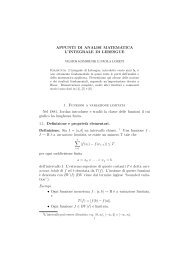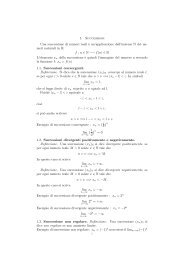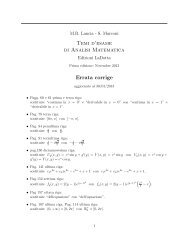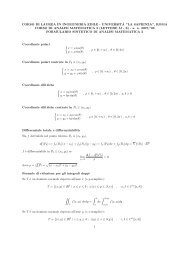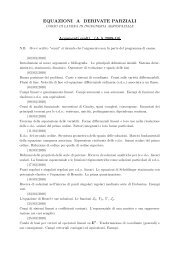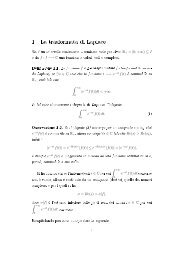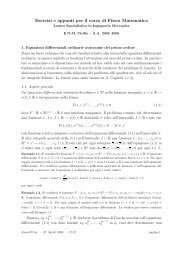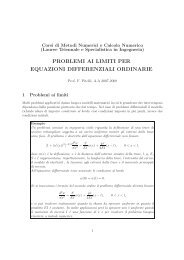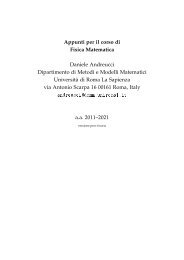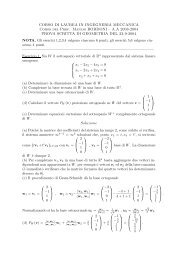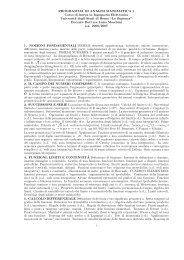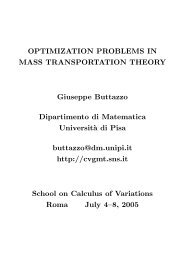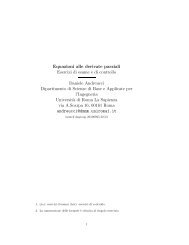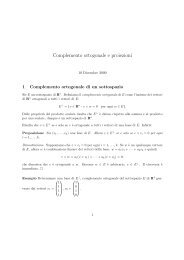DIFFERENtIAl & DIFFERENCE EqUAtIONS ANd APPlICAtIONS
DIFFERENtIAl & DIFFERENCE EqUAtIONS ANd APPlICAtIONS
DIFFERENtIAl & DIFFERENCE EqUAtIONS ANd APPlICAtIONS
Create successful ePaper yourself
Turn your PDF publications into a flip-book with our unique Google optimized e-Paper software.
SECOND-ORDER DIFFERENTIAL GRADIENT<br />
METHODS FOR SOLVING TWO-PERSON<br />
GAMES WITH COUPLED VARIABLES<br />
ANATOLY ANTIPIN<br />
A two-person nonzero-sum game is considered both the classical statement and the form<br />
of a coupled-variables game. Second-order gradient method for solving coupled-variables<br />
game is offered and justified. The convergent analysis is given.<br />
Copyright © 2006 Anatoly Antipin. This is an open access article distributed under the<br />
Creative Commons Attribution License, which permits unrestricted use, distribution,<br />
and reproduction in any medium, provided the original work is properly cited.<br />
1. Statement of introduction<br />
Let us consider the problem of computing a fixed point of a two-person nonzero-sum<br />
game: find x1 ∗ ∈ X 1 , x2 ∗ ∈ X 2 such that<br />
x1 ∗ ∈ Argmin{ ( ) ( ) }<br />
f 1 z1 ,x2<br />
∗ + ϕ1 z1 | z1 ∈ X 1 ,<br />
x2 ∗ ∈ Argmin{ ( ) ( ) } (1.1)<br />
f 2 x<br />
∗<br />
1 ,z 2 + ϕ2 z2 | z2 ∈ X 2 ,<br />
where X 1 ∈ R n1<br />
1 , X 2 ∈ R n2<br />
2 are convex closed sets in finite-dimensional Euclidean spaces<br />
with various dimensionality in general. Objective functions f 1 (x 1 ,x 2 )+ϕ 1 (x 1 ), f 2 (x 1 ,x 2 )+<br />
ϕ 2 (x 2 ) are defined on the product spaces R n1<br />
1 , R n2<br />
2 . If the functions f 1 (z 1 ,x 2 )+ϕ(z 1 ),<br />
f 2 (x 1 ,z 2 )+ϕ(z 2 ) are continuous and convex in their own variables, that is, the first function<br />
is convex in z 1 and second one is convex in z 2 for any values of x 1 and x 2 ,whereX i ,<br />
i = 1,2, are convex compact sets, then there exists a solution x ∗ = (x1 ∗ ,x2 ∗ )of(1.1)[10].<br />
Any solution of (1.1) or Nash equilibrium describes some compromise with a summarized<br />
gain f 1 (x1 ∗ ,x2 ∗ )+ϕ 1 (x1 ∗ )+ f 2 (x1 ∗ ,x2 ∗ )+ϕ 2 (x2 ∗ ). If the sum f 1 (x 1 ,x 2 )+ϕ 1 (x 1 )+<br />
f 2 (x 1 ,x 2 )+ϕ 2 (x 2 ) ∀x 1 ∈ X 1 , x 2 ∈ X 2 is equal to zero, then a problem is called as zerosum<br />
two-person game. Following conceptions accepted in decision making, we suppose<br />
that functions ϕ i (x i ), i = 1,2, describe the preferences of every player in choosing their<br />
alternatives over their own subsets X i , i = 1,2. In turn, the functions f i (x 1 ,x 2 ), i = 1,2,<br />
describe a dependence or an effect of one player on the other player, if one of them is<br />
taking his choice.<br />
Hindawi Publishing Corporation<br />
Proceedings of the Conference on Differential & Difference Equations and Applications, pp. 67–79



